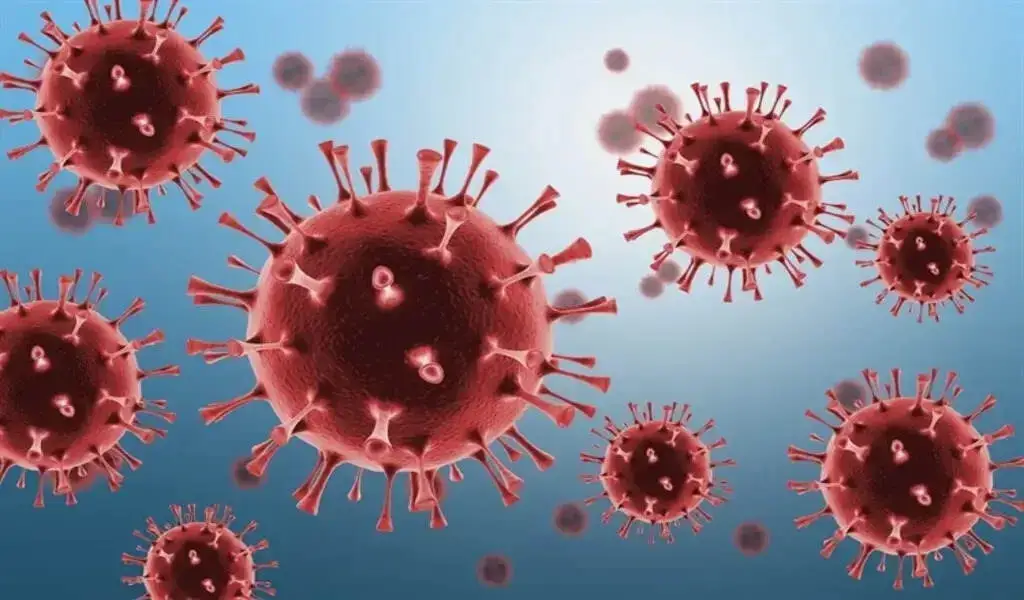Health
COVID-19 Severity Is Influenced By a Variation In The Vitamin D Receptor.

(CTN News) – COVID-19 clinical range includes anything from mild symptoms to serious pneumonia or death. Severe cases of COVID-19 may be more susceptible to deficiency even though serum vitamin D levels might not have a big effect on it. Vitamin D made by the lung controls immune responses and might affect how severe COVID-19 is.
VDR polymorphisms affect immune response. COVID-19 patients with VDR polymorphisms report dyspnea, kidney impairment, and hypertension. Vitamin D variation affects respiratory infections.
Understanding these genetic variables could help to establish treatment plans, make it possible to identify those who are at risk, and direct later research targeted at COVID-19 management.
As such, the aim of the present study was to compare and contrast VDR polymorphisms in patients suffering from moderate and severe COVID-19 strains.
About the investigation
This study uses subjects from the ongoing Isfahan COVID Cohort (ICC). A total of 176 COVID-19 patients met the inclusion criteria; of these, 91 (mean age 47.77 years, 37% male) were not hospitalized and 85 (mean age 59.04 years, 37% male) were.
From databases kept up to date by provincial health centers, eligible patients who were at least 19 years old and had positive RT-PCR (reverse transcription polymerase chain reaction) findings were chosen by convenience sampling.
While hospitalization criteria were set based on the World Health Organization’s (WHO) categories of moderate or severe cases, the non-hospitalized patients were asymptomatic. The National Institutes for Medical Research Development (NIMAD) in Tehran, Iran, authorized the study plan and all subjects gave written informed consent.
Inquiries were conducted by health center interviewers with experience administering questionnaires. Analyzing lifestyles, socioeconomics, and demographics. In addition to chronic lung disease, chronic kidney disease, and drug use, medical records were gathered on non-communicable conditions.
Blood samples were taken in order to separate the deoxyribonucleic acid, or DNA. Amplification refractory mutation system (ARMS) PCR and Sanger sequencing were used for genotyping of VDR gene polymorphisms after DNA quality was assessed with Nanodrop and agarose gel.
Chi-square test, Fisher-exact test, Student’s t-test, Mann-Whitney test, Bonferroni correction, odds ratios (OR) and logistic regression were used in this statistical analysis.
Concluding remarks
The hospitalized group had lower mean ages and waist circumferences than the non-hospitalized group, but they also showed less physical activity overall. Furthermore, the hospitalized group had greater rates of hypertension and diabetes mellitus but fewer current smokers than the non-hospitalized group.
Among the SNPs studied, the TT genotype of rs11568820 was shown to be significantly uncommon in the hospitalized group (3.5%) compared to the non-hospitalized group (17.6%; P=0.018).
A similar statistical significance was observed for the recessive model. There was no significant difference in allele frequencies or genotypes between the two groups for rs7970314 and rs4334089.
Although coronary heart disease, smoking, and body mass index were adjusted for, the rs11568820 SNP genotype remained significantly inversely linked to COVID-19 hospitalization. This genotype was associated with an 82% lower chance of hospitalization by 0.18. Conversely, COVID-19 hospitalization was not significantly associated with rs7970314 or rs4334089. Hospitalization was statistically significantly correlated (OR=0.14) with rs11568820, while other single nucleotide polymorphisms did not.
One significant feature of the study is its examination of the distribution of VDR SNPs across various COVID-19 severity levels; this viewpoint has not gotten as much attention in earlier studies that have mostly concentrated on serum vitamin D levels and susceptibility.
Still, the study’s descriptive character limits its capacity to prove causal links between COVID-19 severity and polymorphisms in VDR.
Lack of serum vitamin D level measurements and immunological factor information further impedes the thorough interpretation of the results. It will take bigger, more thorough studies including different patient groupings.
And finally,
Overall, the TT genotype of rs11568820 was successfully found by the present study to be a protective factor against severe COVID-19 strains. More thorough study that accounts for a range of confounding factors is required, meanwhile, in order to validate these findings.
Knowing genetic predispositions going forward could improve customized treatment plans in the battle against COVID-19.
SEE ALSO:
Top 5 Live Resin Gummies for a Unique Cannabis Experience





























